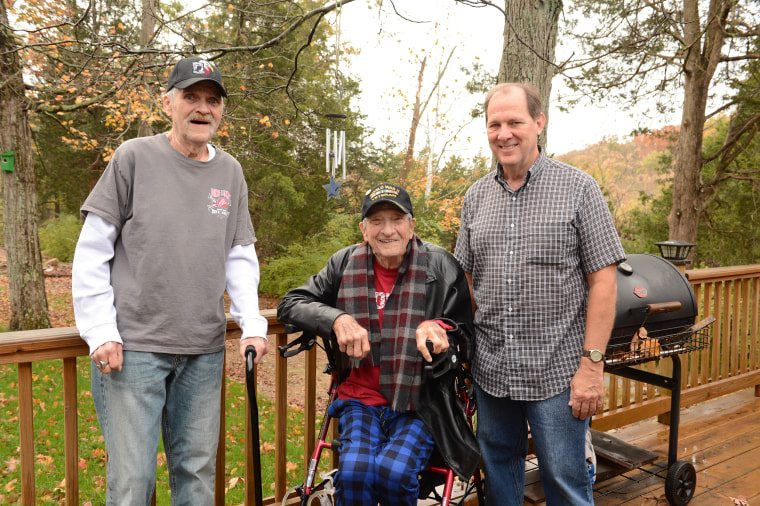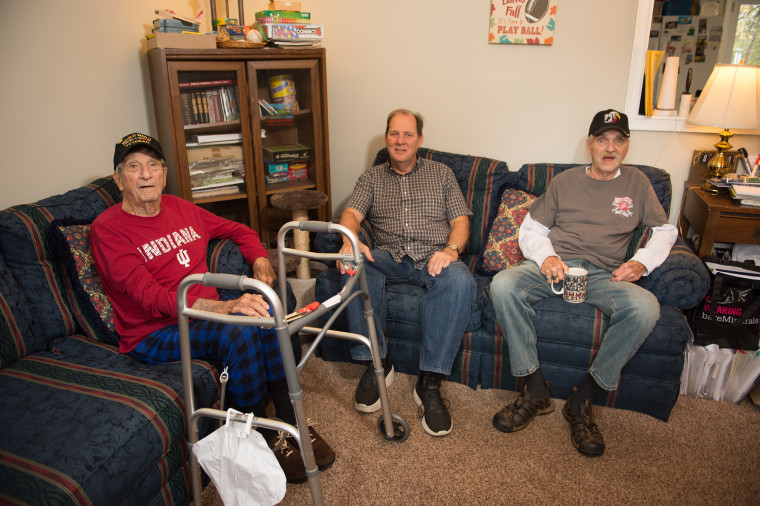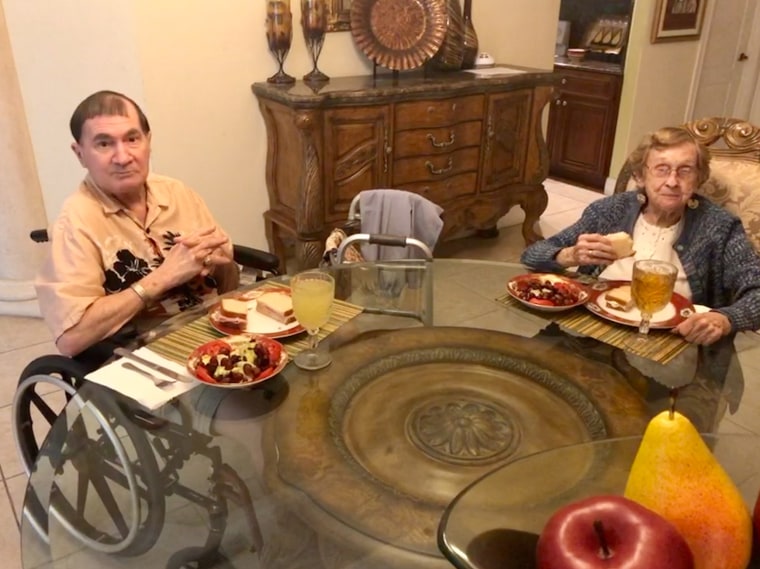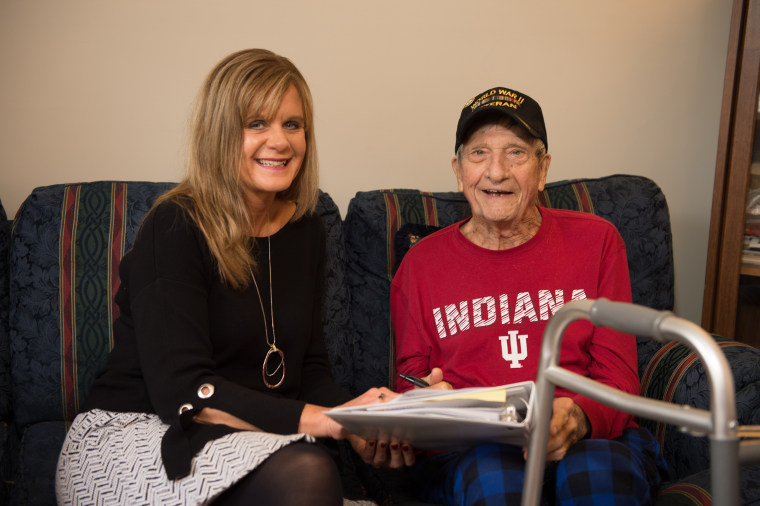When Lori Paris first met Vietnam War veteran Carroll Botts, he was living an isolated life in a nursing home.
“His room was dark and he was just laying in bed,” Paris told TODAY Parents. “He didn’t want to leave his room.”
Less than two years later, Botts, 70, is attending concerts and visiting with children at a local elementary school.
"Mr. Botts has come completely alive,” Paris said. “It’s like night and day.”

Foster homes for veterans
Moving into a medical foster home marked the turning point. The foster home program, run by the Department of Veterans Affairs as an alternative to nursing home care, serves more than 1,000 veterans and offers 24/7 care in private homes. At $2,500 a month, it's half the price of a traditional nursing home, but many would argue the benefits are priceless. In these foster homes, many veterans find something that's been sorely missing in their lives: a sense of family and camaraderie.
Paris, a medical foster home program coordinator, placed Botts in a sprawling ranch-style home with two other male veterans in Indiana. The homeowner — and the men's caregiver — is Barney Musselman, a chiropractor and licensed nurse who, like the other men in the home, is pretty low-key and loves being surrounded by nature.
“I’ll stop by and Mr. Botts is relaxing on the deck or hanging out in the living room,” Paris revealed. “I’ve never once seen him in his bed.”

Not just a job, they're family
More than 1,000 miles away in Port St. Lucie, Florida, Regine Kercy is running a medical foster home where she cares for Henryette Marshall, a 95-year-old female veteran of World War II, and Henry W. Sterrett III, a 73-year-old Vietnam veteran. Like Botts, Sterrett has undergone a complete transformation.
"Hank looked about 20 years younger after being with Regina for two months," medical foster home program coordinator Emily Flowers-Yahn gushed. "He was wheelchair-bound and she worked with him every single day to improve his mobility. You can see he is so proud of what he has accomplished."

Kercy doesn't consider what she does to be a job. In her mind, Marshall and Sterrett, both Navy veterans, are family. "They are my joy," she told TODAY Parents. "I love them."
Musselman and Kercy are among 700 caregivers in 44 states hosting up to three disabled veterans in their homes. All caregivers go through a rigorous training process and are certified in CPR. Veterans also receive at-home support from a team of VA health care staff members, including doctors, psychologists, occupational therapists and social workers.
Veterans with dementia or traumatic brain injury are particularly successful in medical foster homes, according to Dayna Cooper, director of the agency’s program.
“We find that nursing home environments aren’t good for those patients because they are overstimulating,” Cooper explained. “In a smaller home you have a routine caregiver and an environment that caters to your individual needs. If you want breakfast at 10 a.m., you can have breakfast at 10 a.m. It's not dictated by routines or a clock."

A World War II veteran named Norman Miller moved into Musselman’s home on Halloween after breaking his hip. So far, he has no complaints.
“I jumped at the idea of coming here,” Miller, 93, said. “It’s a family situation and I like that."
Never miss a parenting story with the TODAY Parenting newsletter! Sign up here.
Related video:
